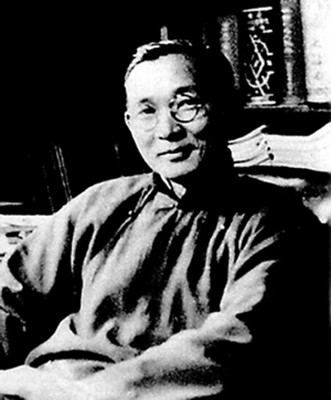For this reason,and out of consideration for the utmost rightness and cleanliness in preparation, Chinese writers on tea have always insisted on personal attention in boiling tea, or since that is necessarily inconvenient, that two boy servants be specially trained to do the job.
因為這個理由,因為要顧到烹時的合度和潔凈,有茶癖的中國文士都主張烹茶須自己動手。如嫌不便,可用兩個小童為助。
Tea is usually boiled on a separate small stove in the room or directly outside,away from the kitchen.
烹茶須用小爐,烹煮的地點須遠離廚房,而近飲處。

The servant boys must be trained to make tea in the presence of their master and to observe a routine of cleanliness, washing the cups every morning (never wiping them with a towel),washing their hands often and keeping their fingernails dean.
茶童須受過訓練,當主人的面前烹煮。一切手續都須十分潔凈,茶杯須每晨洗滌,但不可用布揩擦。童兒的兩手須常洗,指甲中的污膩須剔干凈。
"When there are three guests, one stove will be enough, but when there are five or six persons, two separate stoves and kettles will be required, one boy attending to each stove, for if one is required to attend to both, there may be delays of mix-ups."
“三人以上,止爇一爐,如五六人,便當兩鼎, 爐用一童,湯方調適,若令兼作,恐有參差。”
True connoisseurs, however, regard the personal preparation of tea as a special pleasure.
真正鑒賞家常以親自烹茶為一種殊樂。
Without developing into a rigid system as in Japan, the preparation and drinking of tea is always a performance of loving pleasure, importance and distinction.
中國的烹茶飲茶方法不像日本那么過分 嚴肅和講規則,而仍屬一種富有樂趣而又高尚重要的事情。
In fact, the preparation is half the fun of the drinking, as cracking melon-seeds between one's teeth is half the pleasure of eating them.
實 在說起來,烹茶之樂和飲茶之樂各居其半,正如吃西瓜子,用牙齒咬瓜子殼之樂和吃瓜子肉之樂實各居其半。
Usually a stove is set before a window, with good hard charcoal burning.
茶爐大都置在窗前,用硬炭生火。












